Strep A: Trust looks at plans to control spread in Royal Belfast children's hospital
- Published

The Belfast Trust's infection control team are examining how to reduce levels of strep A coming into the Children's Hospital, BBC News NI understands.
It comes after a record 227 children were brought to the hospital on Wednesday, the trust says.
All routine procedures have been postponed due to pressures caused by a rise in bacterial and viral infections.
There is concern about how the hospital will accommodate children and parents if attendances continue to rise.
There are no official figures on exactly how many children have been admitted with strep A.
But it is understood that more children with respiratory syncytial virus (RSV) and flu are being cared for on wards.
Plans to keep potential strep A patients separate from other patients and members of the public from coming into the building are also under review.
On Monday, five-year-old Stella-Lily McCorkindale died from an illness linked to strep A on Monday.
She became severely ill last week and was treated at the Royal Belfast Hospital for Sick Children.
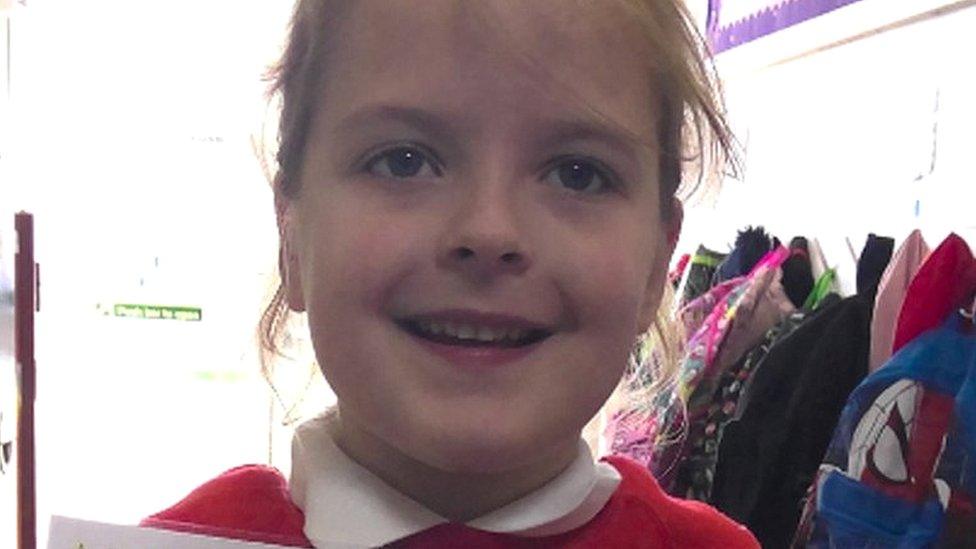
Stella-Lily McCorkindale became severely ill last week and died on Monday
The Belfast Trust said parents should consult the online symptom checker if concerned about their child. , external
Nine children in the UK have died with rare but severe bacterial strep A infections since September.
In the Republic of Ireland, health officials confirmed a four-year-old child from the north-east of the country died from strep A infection on Wednesday.
Concerns have been raised about local supply levels of antibiotics due to a recent acute increase in demand.
The Department of Health said it was working with national counterparts to maintain the flow of supplies to Northern Ireland.
What is Strep A?
Most strep A infections are mild - a sore throat or a skin infection that can be easily treated with antibiotics.
But some people who catch it can get very sick.
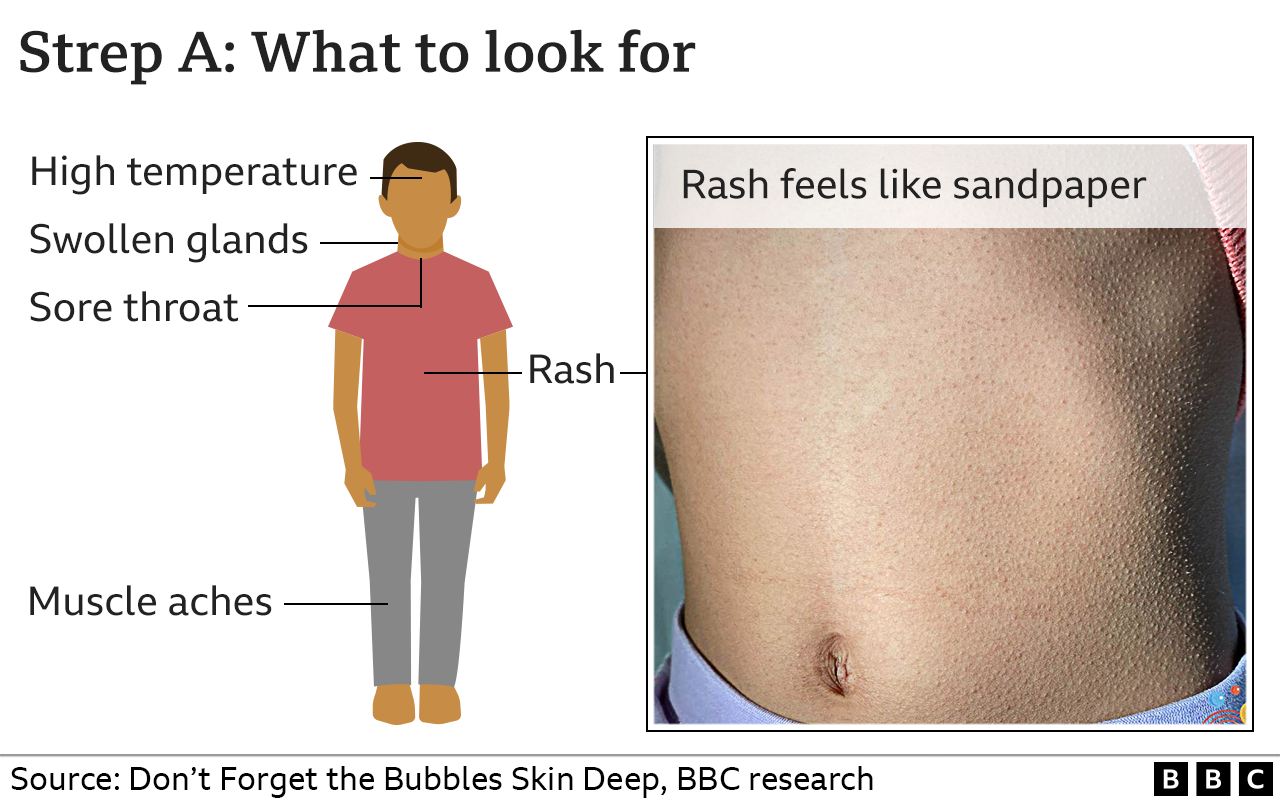
Some people develop scarlet fever, which causes a skin rash (that feels like sandpaper) and flu-like symptoms, including a high temperature.
Figures show there were at least 104 cases of scarlet fever in Northern Ireland in November, external, up from 43 in October.
Very rarely, Strep A can cause something called invasive group A streptococcal infection or iGAS, which can be deadly.
Invasive disease happens when the bacteria get past your body's immune defences.
The government said that during a similar period in 2017-18, external - the last high season for iGAS infection - there were four deaths in England.
But the number of cases of iGAS - the most serious form of infection - is 33 so far in 2022, compared to 55 in 2018 and 72 in 2019 (before the pandemic).
The Public Health Agency said there was no indication Northern Ireland was seeing more deaths from iGAS than in previous years.
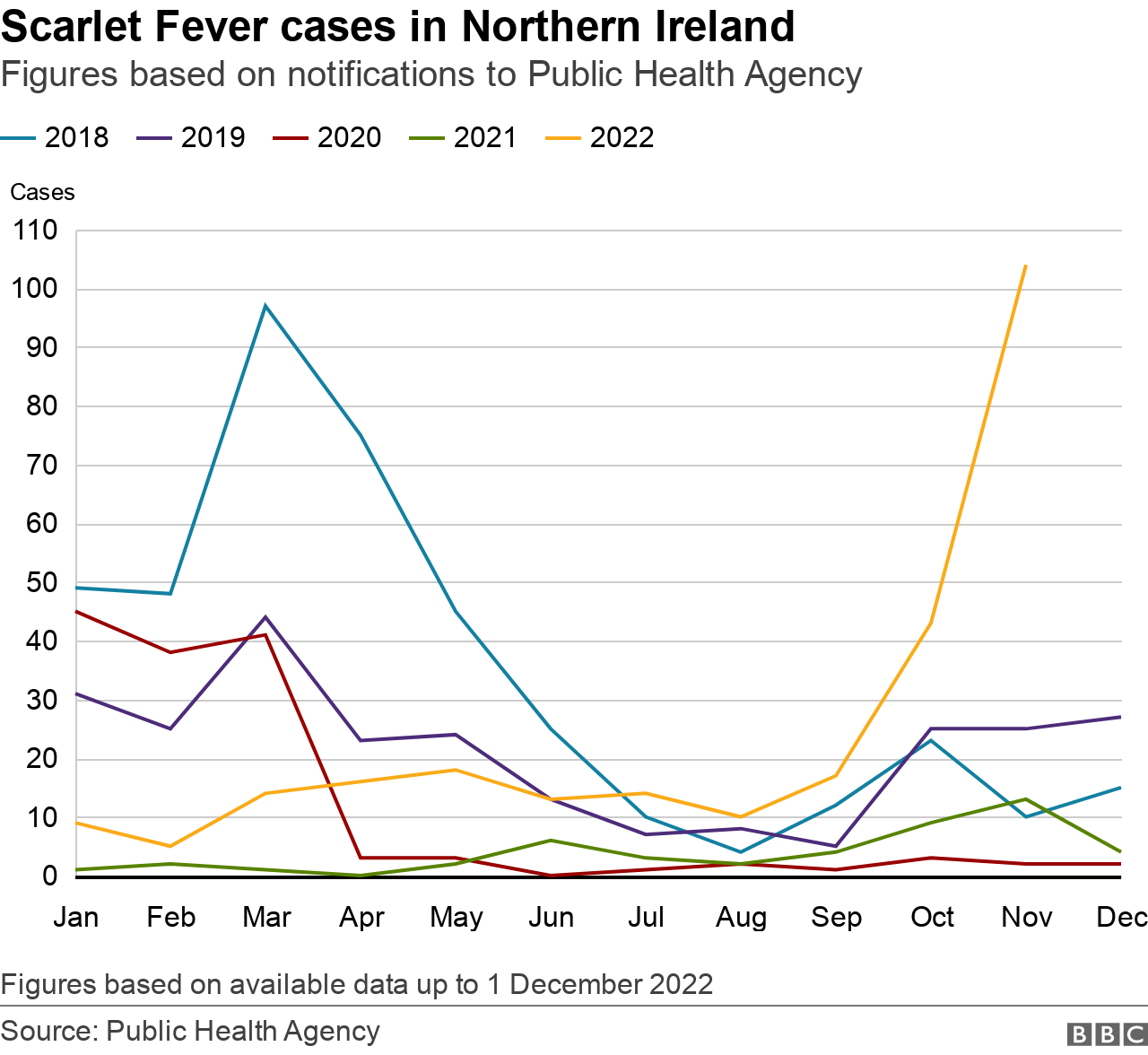

What should parents do?
As a parent, if you feel that your child seems seriously unwell, you should trust your own judgement. Contact your GP if:
your child is getting worse
your child is feeding or eating much less than normal
your child has had a dry nappy for 12 hours or more or shows other signs of dehydration
your baby is under three months old and has a temperature of 38°C, or is older than three months and has a temperature of 39°C or higher
your baby feels hotter than usual when you touch their back or chest, or feels sweaty
your child is very tired or irritable
Call 999 or go to A&E if:
your child is having difficulty breathing - you may notice grunting noises or their tummy sucking under their ribs
there are pauses when your child breathes
your child's skin, tongue or lips are blue
your child is floppy and will not wake up or stay awake
Related topics
- Published7 December 2022

- Published9 December 2022
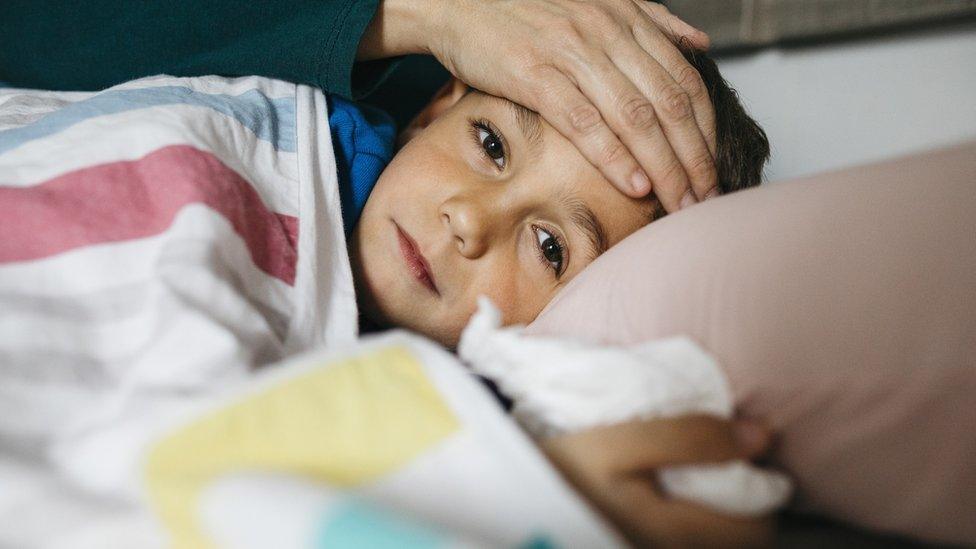
- Published15 December 2022
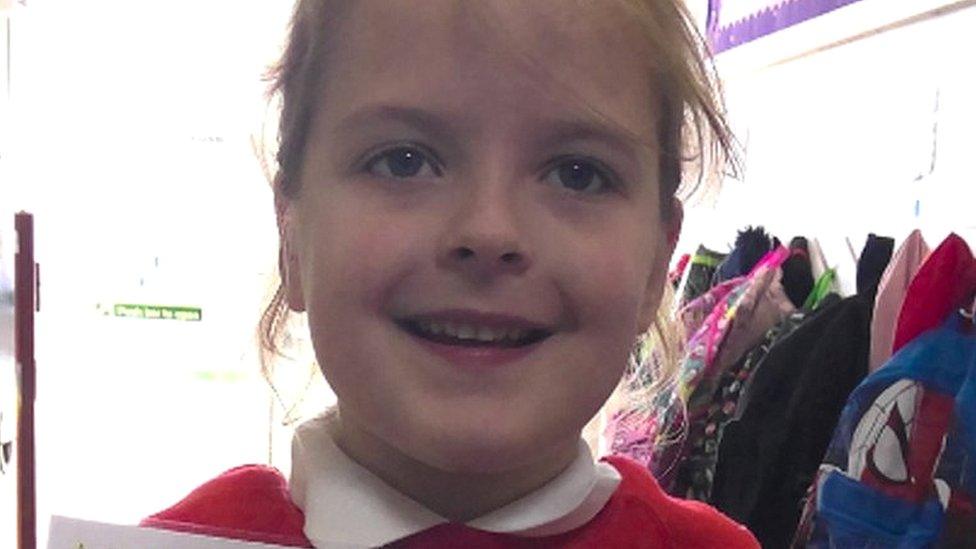
- Published5 December 2022
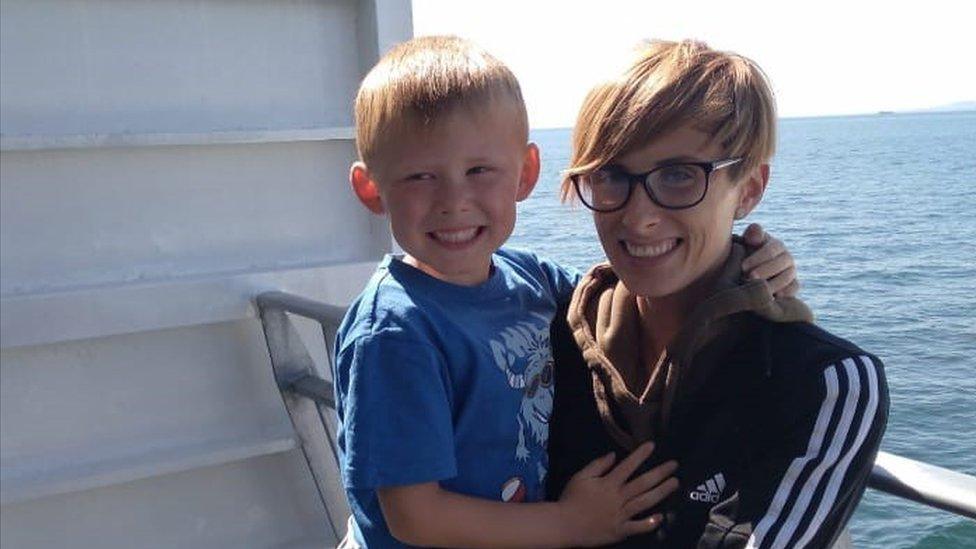
- Published5 December 2022
